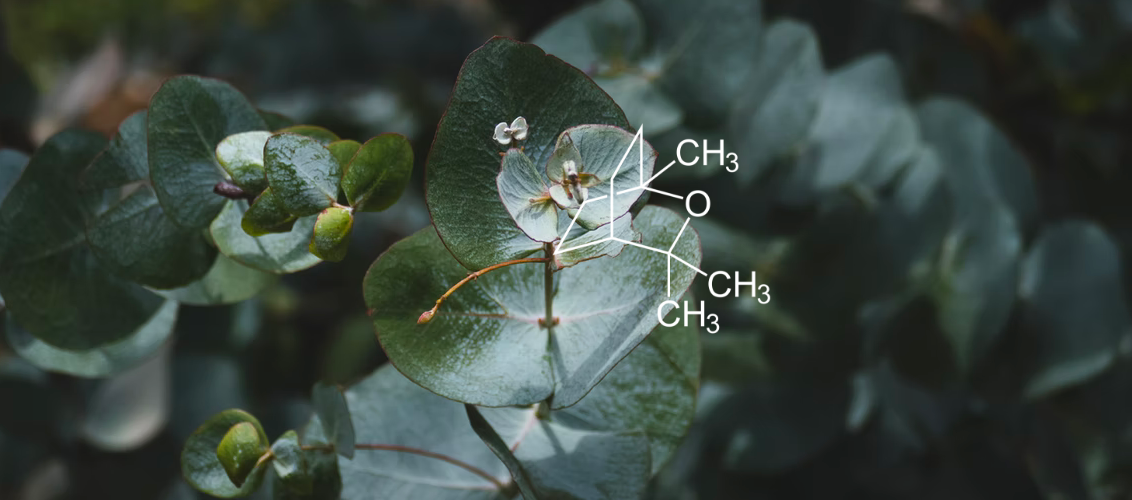
Benefits of Eucalyptus Super-Plant
What is Eucalyptus?
Eucalyptus is an evergreen tree that originates from Australia. Eucalyptus is a genus of more than 700 species of flowering trees, shrubs and mallees of Myrtaceae. Eucalyptus has a smooth, hard and fibrous bark. It also produces leaves that contain oil glands. The main source of eucalyptus oil is Eucalyptus globulus which is known as blue gum. Also, the fruit produced by eucalyptus is a woody capsule popularly known as gumnut.
Uses of Eucalyptus
1. Eucalyptus oil is used as a flavoring agent in the preparation of food.
2. Eucalyptus is used in the production of many healthcare products, such as cough syrup.
3. Eucalyptus is used in manufacturing creams and ointments.
4. Eucalyptus is used in the cosmetics and perfumery industries because of its sweet fragrance.
5. Eucalyptus is used to produce repellents against insect pests at home.
6. Eucalyptus is used in the preparation of industrial solvents.
Traditional uses of Eucalyptus
Eucalyptus leaf is rich in essential oils and used traditionally in syrups to support the respiratory system, cheat health and soothes the throat. The essential oil is also used as a cleaning agent and in treating a range of health conditions for thousands of years.
Surprising facts about Eucalyptus
Eucalyptus is one of the tallest trees on the planet. Eucalyptus has over 700 species that belong to the Myrtaceae family.
Eucalyptus are evergreen plants and can exist as either a tree or a shrub depending on the species.
Eucalyptus is highly useful and important because of the essential oil it contains.
Eucalyptus can be used to drain marsh because it can absorb much water from the ground.
Because eucalyptus can absorb much water, it can help destroy wet habitats, thereby reducing the development of mosquito's eggs.
Eucalyptus can reach a height of 33 to 200 feet in height depending on its species.
Eucalyptus leaves are positioned in a downward direction which prevents direct sunlight and loss of water.
Eucalyptus leaves are also rich in essential oils, which can help destroy nasal congestion, bronchitis, and sore throat.
Eucalyptus oil can be used as an insecticide.
Eucalyptus produces pink, red, yellow or white flowers.
Every part of the eucalyptus tree can be used in the production of dye.
Health benefits of Eucalyptus and why myAir bars contain it
1. Eucalyptus can help to relieve cold symptoms
Eucalyptus is a natural remedy for colds, so it is used to produce cough and cold products.
Research on eucalyptus oil shows that it contains a compound known as cineole which can help lower mucus and expand the bronchi and bronchioles of the lungs. It is also an anti-inflammatory agent.
Some researchers have also found that eucalyptus contains eucalyptol which helps relieve cold symptoms such as nasal congestion, headache, and cough frequency by lowering mucus buildup and inflammation in the body. It may also help to improve asthma symptoms.
A 12-week study of 32 people with bronchial asthma treated with either placebo or 600 mg of eucalyptol daily shows that the eucalyptol group needed 36% less medication to control their asthma. In contrast, those in the control group required 7% less.
Furthermore, eucalyptus oil can be inhaled through the nose to relieve cold symptoms in the body. However, avoid orally consuming eucalyptus oil because it is toxic!
Eucalyptus contains a compound called eucalyptol which helps to lower cough frequency, nasal congestion and cold-related headaches. Eucalyptus oil can also help to improve asthma symptoms.
2. Eucalyptus can help treat dry skin
Eucalyptus can help treat dry skin by increasing its ceramide content. Ceramide is a fatty acid present in the skin and responsible for the moisture maintenance of the skin. The level of ceramides in the skin leads to dandruff, dry skin and some skin disorders such as psoriasis and dermatitis.
Eucalyptus leaves extract contains a compound known as macrocarpal, which can help to improve the production of skin ceramide, skin barrier protection and water-holding capacity.
In a study of 34 people, the people were made to use scalp lotion containing eucalyptus leaf extract and synthetic ceramide, which led to a reduction in scalp dryness, redness, scaliness and itchiness. Eucalyptus leaf extract is therefore used in the production of hair and skin products.
Eucalyptus leaf extract contains compounds that can improve ceramide production in the skin, thereby treating dry skin and dandruff.
3. Eucalyptus is rich in antioxidants
Eucalyptus leaves are rich in antioxidants such as flavonoids which protects the body from free radical damage and oxidative stress. Eucalyptus cannot be consumed fresh, but the dried leaves can be used to make tea. However, DO NOT mistake the oil for tea because consuming eucalyptus oil is harmful! The flavonoids present in eucalyptus are quercetin, luteolin, catechins, kaempferol, isorhamnetin and phloretin. These compounds can guard the body against heart diseases and dementia.
A study of 60,289 women and 38,180 men showed that diets rich in flavonoids helped to lower the risk of fatal heart disease by 18%.
Eucalyptus tea is a good source of flavonoids and safe for consumption in adults.
Eucalyptus tea is very rich in flavonoids which can help to lower the risk of heart disease and dementia.
4. Eucalyptus can help reduce pain
Eucalyptus can be inhaled to help reduce pain. Eucalyptus contains some anti-inflammatory compounds such as limonene and cineole responsible for pain relief.
A 3-day study of 52 people who went through knee replacement surgery found that inhaling eucalyptus oil dissolved in almond oil for 30 minutes daily lowered pain and high blood pressure levels compared to those who inhaled almond oil alone.
Inhaling eucalyptus oil can help to lower pain and high blood pressure levels in the body.
5. Eucalyptus can help maintain healthy teeth
Eucalyptol, eucalyptus leaf extract, can help to improve the dental health of man. Eucalyptus leaves contain a high amount of macrocarpal C and ethanol, which can help lower bacteria levels that cause gum and cavities diseases.
A study of 97 people found that those who chewed gum with eucalyptus leaf extract five times daily for 5 minutes experienced a reduction in plaque buildup, gum inflammation and gum bleeding, while the control group experienced no improvement. Eucalyptus leaf extract is added to mouthwash to clean the teeth.
When gum is chewed with eucalyptus leaf extract, it can help to lower gum disease and plaque buildup on teeth.
6. Eucalyptus can help to enhance relaxation
Eucalyptus is believed and known to lower symptoms of stress.
In a study of 62 healthy people, the people experienced a huge reduction in pre-surgery anxiety after inhaling eucalyptus oil. This is because eucalyptus contains eucalyptol which has anti-anxiety properties. Also, inhaling eucalyptus oil for 30 minutes can help reduce high blood pressure levels in patients after knee surgery, indicating that eucalyptus has a calming effect on the patients.
Many researchers also believe that it lowers stress response and increases parasympathetic nervous system activity, which enhances relaxation.
Eucalyptus oil can help lower high blood pressure level and anxiety because it can activate the parasympathetic nervous system, which enhances relaxation in the body.
7. Eucalyptus can be used as a natural insect repellent
Eucalyptus oil can serve as a natural insect repellent because of the presence of eucalyptol in it.
Research has also shown that eucalyptus is potent in warding off mosquitoes and other harmful insects for up to 8 hours after it is applied. The higher the eucalyptol content level in eucalyptus oil, the higher its effectiveness as a repellent.
Center for Disease Control and Prevention suggests that lemon eucalyptus oil is an approved and potent insect repellent. Also, eucalyptus oil can help to treat head lice. In a randomized study of eucalyptus oil, it was found that eucalyptus oil was twice as effective as the known head lice treatment.
Eucalyptus oil contains eucalyptol which can help to repel mosquitoes and other harmful insects. It can also help to treat head lice.
Conclusion
Every part of the eucalyptus tree, such as the leaves, bark and oil, help cure one ailment or the other. However, more research is needed to determine the full potential health benefits of eucalyptus. Good news - myAir bars are packed with Eucalyptus!
Footnotes
Antioxidant activity, neuroprotective properties, and bioactive constituents analysis of varying polarity extracts from Eucalyptus globulus leaves
Elena González-Burgos et al. J Food Drug Anal. 2018 Oct
https://pubmed.ncbi.nlm.nih.gov/30249328/
Flavonoids: an overview A N Panche et al. J Nutr Sci. 2016. https://www.ncbi.nlm.nih.gov/pubmed/28620474
Flavonoid intake and cardiovascular disease mortality in a prospective cohort of US adults
Marjorie L McCullough et al. Am J Clin Nutr. 2012 Feb. https://www.ncbi.nlm.nih.gov/pubmed/22218162
Efficacy of cineole in patients suffering from acute bronchitis: a placebo-controlled double-blind trial
Juergen Fischer et al. Cough. 2013.
https://www.ncbi.nlm.nih.gov/pubmed/24261680
Therapy for acute nonpurulent rhinosinusitis with cineole: results of a double-blind, randomized, placebo-controlled trial
Wolfgang Kehrl et al. Laryngoscope. 2004 Apr.
https://pubmed.ncbi.nlm.nih.gov/15064633/
Anti-inflammatory activity of 1.8-cineol (eucalyptol) in bronchial asthma: a double-blind placebo-controlled trial
U R Juergens et al. Respir Med. 2003 Mar
https://www.ncbi.nlm.nih.gov/pubmed/12645832
Immune-modifying and antimicrobial effects of Eucalyptus oil and simple inhalation devices
Angela E Sadlon et al. Altern Med Rev. 2010 Apr.
https://pubmed.ncbi.nlm.nih.gov/20359267/\
Eucalyptus increases ceramide levels in keratinocytes and improves stratum corneum function
J Ishikawa et al. Int J Cosmet Sci. 2012 Feb
https://pubmed.ncbi.nlm.nih.gov/21696405/
The efficacy of a pseudo-ceramide and eucalyptus extract containing lotion on dry scalp skin
Yutaka Takagi et al. Clin Cosmet Investig Dermatol. 2018.
https://pubmed.ncbi.nlm.nih.gov/29670385/
Effect of eucalyptus oil inhalation on pain and inflammatory responses after total knee replacement: a randomized clinical trial
Yang Suk Jun et al. Evid Based Complement Alternat Med. 2013.
https://pubmed.ncbi.nlm.nih.gov/23853660/
Effect of Inhalation Aromatherapy on Procedural Pain and Anxiety After Needle Insertion Into an Implantable Central Venous Port Catheter: A Quasi-Randomized Controlled Pilot Study
Ezgi Mutluay Yayla et al. Cancer Nurs. Jan/Feb 2019
https://pubmed.ncbi.nlm.nih.gov/29199999/
The effect of 1,8-cineole inhalation on preoperative anxiety: a randomized clinical trial
Ka Young Kim et al. Evid Based Complement Alternat Med. 2014.
https://pubmed.ncbi.nlm.nih.gov/25028591/
Effect of eucalyptus extract chewing gum on periodontal health: a double-masked, randomized trial
Hideki Nagata et al. J Periodontol. 2008 Aug.
https://pubmed.ncbi.nlm.nih.gov/18672986/
Eucalyptus essential oil as a natural pesticide
Author links open overlay panelDaizy R.BatishaShalinderKaura
https://www.sciencedirect.com/science/article/abs/pii/S0378112708006166
Mosquitoes, Ticks & Other Arthropods
John-Paul Mutebi, John E. Gimnig
The efficacy of Australian essential oils for the treatment of head lice infestation in children: A randomized controlled trial
Kerryn A Greive et al. Australas J Dermatol. 2018 May.
https://pubmed.ncbi.nlm.nih.gov/28266704/
Head lice
Ian F. Burgess, MSc MPhil FRES, Director and Paul Silverston, BA Jt Hons, MBChB, AHEA, Senior Lecturer in Clinical Assessment Teaching
https://www.ncbi.nlm.nih.gov/pmc/articles/PMC4294162/
